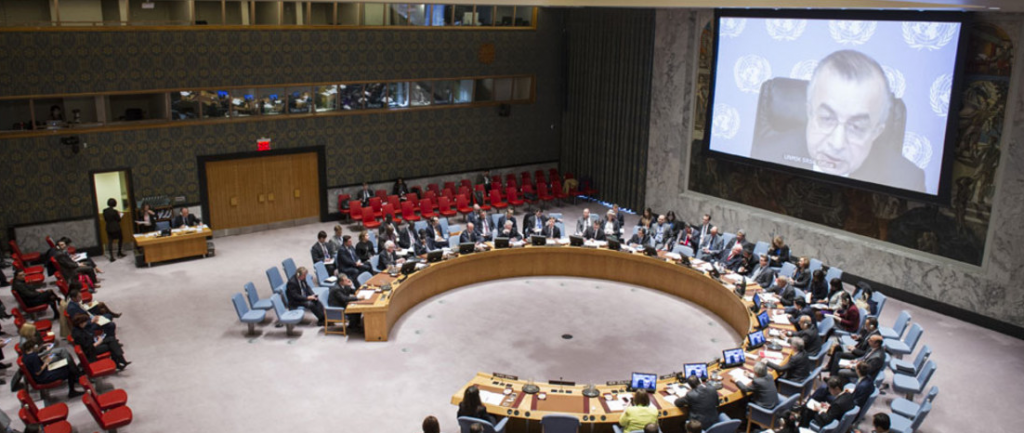
By Rafaela Prifti/ Kosovo’s vulnerability to the pandemic worsened by political divisions, says Head of UNMIK, Mr. Zahir Tanin. Security Council struggles over a symbolic Resolution for a global ceasefire.
The Secretary General Special Representative and Head of the UN Interim Administration Mission in Kosovo (UNMIK) Zahir Tanin conducted his first regular briefing to the UN Security Council via videoconference on Friday. He told the Security Council that Kosovo is especially vulnerable to the threat of a wider pandemic. Mr. Tahin commended the ‘swift actions taken by public health authorities and heroic efforts by the medical personnel’. However, the Special Representative of Secretary General for Kosovo expressed concern over internal political instability. “It is an unfortunate feature of the present circumstances in Kosovo that political divisions have distracted the attention of many leaders away from the health crises,” he said. While calling for more resources to assist the most vulnerable in Kosovo, Mr. Tanin asserted that the internal divisions have “served to reduce public trust in political leadership…” The Head of UNMIK outlined several critical elements needed to combat the coronavirus outbreak such as “a focused government, a mobilized population and resources driven by strong leadership.” In the face of new alarming challenges such as a stark rise in domestic violence, Mr. Tanin urged political leaders “to focus on unifying their energy while putting personal and political agendas aside.”
On another development, the US diplomats have blocked a vote on a UN Security Council Resolution intended to show global support for a ceasefire during the Covid-19 pandemic. The Council, comprised of fifteen member countries, has been trying for more than six weeks to agree on a text that calls for a ceasefire in global conflicts so the world can focus on the pandemic. The cause of the delay is the US refusal to endorse a resolution that references the World Health Organization, a UN agency based in Geneva. A spokesperson for the US mission at the UN said that if the resolution was to mention the work of the WHO, it would have to include critical language about how China and the WHO have handled the pandemic. Washington has halted funding for the WHO, after President Donald Trump accused it of being “China-centric” and promoting China’s “disinformation” about the outbreak. Through negotiations, a compromise was reached where instead of naming the WHO, the draft referenced “specialized health agencies.” China has insisted it be included, while some other members see the mentioning of the name as a marginal issue. United States rejected that language on Friday, because it was an obvious reference to the WHO which is the only such agency, diplomats said. President Trump has blamed the World Health Organization for the pandemic claiming that it withheld information in the early days without providing supporting evidence. During weeks of negotiations both China and the United States had raised the prospect of a veto on the issue of whether WHO is mentioned or not. A resolution needs nine votes in favor and no vetoes by the five permanent members: France, Russia, Britain, the United States or China to pass. The recent compromise on the text was rejected on Friday. A spokesperson for the Department of State said that the United States had worked constructively and accused China of repeatedly blocking compromises during negotiations. The Security Council is tasked with maintaining international peace and security. At the time of the Coronavirus pandemic, diplomats and analysts say the resolution would have projected global unity by backing the ceasefire call of the UN Secretary General Antonio Guterres.